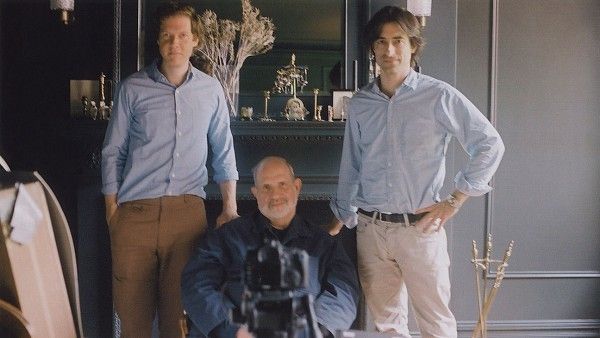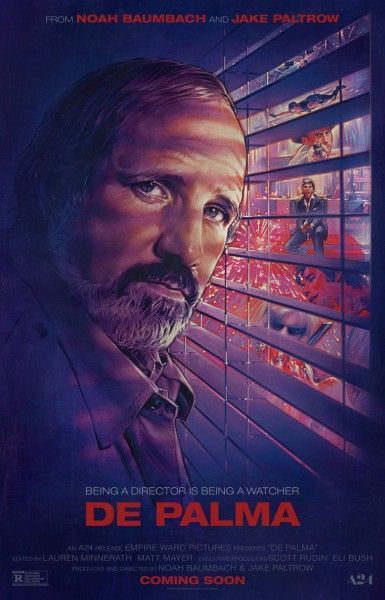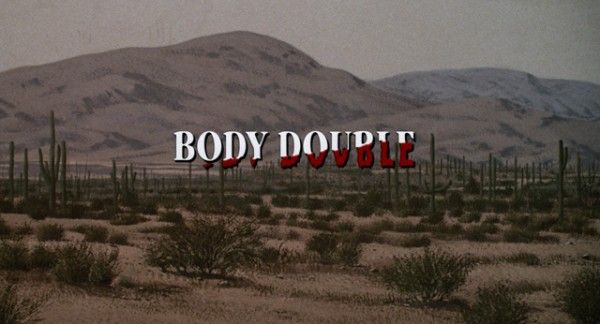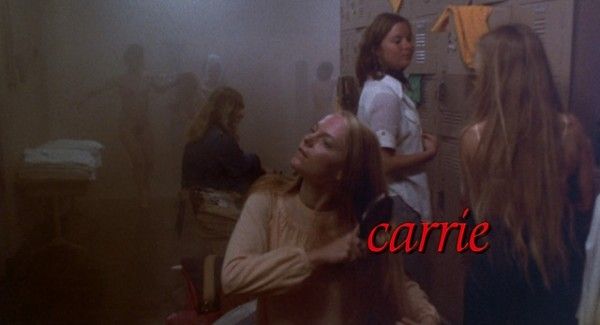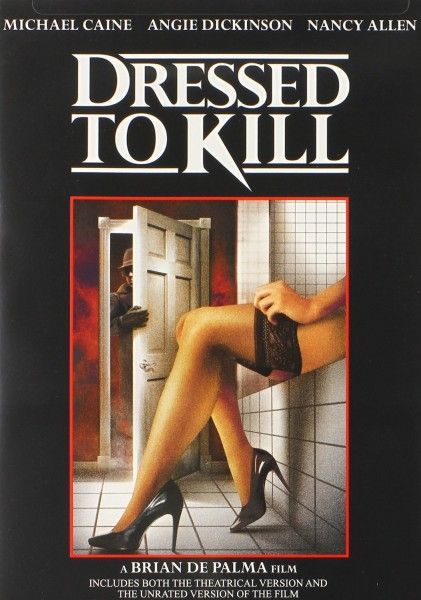When you hear “Brian De Palma,” which movie do you think of first? Perhaps it’s his unquestionably superior Stephen King adaptation of Carrie (1976), or his mobster masterpiece Scarface (1983). Perhaps it’s the first (and arguably the best) of the Mission: Impossible (1996) movies. Or perhaps your favorite is something more obscure, like Phantom of the Paradise (1974) or Dressed to Kill (1980). Asking for a best or favorite De Palma lends as diverse answers as the director’s five-plus-decade-spanning filmography, which is why it’s endlessly fun to discuss his films, and inevitably argue about and defend them.
A new documentary from Noah Baumbach and Jake Paltrow, called De Palma, puts those conversations on the big screen, but gives the platform solely to Brian De Palma himself. There’s only one talking head in this film, and the format works because of De Palma’s onscreen charisma: Between footage of his films, he talks in an intimate, engaging way, dissecting his craft while peppering in juicy Hollywood gossip (Orson Welles, Cliff Robertson, and Sean Penn were not the easiest to work with!). First and foremost, De Palma is a project of passion for the two directors, but it’s also a gift to film fans, and for those not familiar with De Palma’s work, it’s a great point of discovery. De Palma is maybe one of the best films made about a filmmaker, and it’s sure to make you want to visit (or revisit) all his films, even making you consider the ones you’ve hated before. Ahead of the De Palma release (out June 10 via A24), Collider sat down with Baumbach and Paltrow to geek out even more about De Palma, and what it was like to actually become friends with the man they’ve revered for so long.
COLLIDER: This documentary is so much fun to watch, as a De Palma fan and as someone who also has a lot of De Palma blind spots.
JAKE PALTROW: Have you seen a lot of them?
I thought I did and then I watched the film and was like, ‘Oh man, I don’t know so many of these.’ There are a lot of conscious creative choices with the film, like just having Brian talk about his filmography, having him focus on his craft, and not so much on his personal life unless it’s in relation to his movies. Was that something that was discussed with him beforehand?
PALTROW: We talked about that beforehand, that we would not have our voices in it and to have this be just Brian talking and Brian talking against his movies and not have anyone else talking about Brian’s movies, that Brian’s interpretation of his stories is enough. So it simplifies it in one way and then lets you keep approaching it from one angle, I think.
NOAH BAUMBACH: Yeah, the idea was to start at the beginning and that will be our guide. Let’s go from movie to movie and the experiences between movies. He would describe what was going on as a way to kind of get to the next movie.
In your mind, who was this movie made for? Obviously hardcore fans will love it.
PALTROW: For us at first, since we didn’t even know if it would be a movie. I think we just spent so much time with Brian and our friendship grew in a way where we realized this would be so valuable if he spoke to us on camera the way he speaks to us at dinner because what he’s talking about, and the way he talks about it, is so compelling. I think in the beginning it really was for us. And once he turned it on in a way that was just as compelling and electric on camera as it is in person having dinner with him did we realize this is movie-grade stuff. This is beyond just us recording this thing selfishly, this is probably something that lots of people would be interested in, even if they don’t necessarily know Brian’s movies.
Noah, is it true that you met him at Paul Schrader’s birthday party?
BAUMBACH: Yeah I did.
What was your first impression of him?
BAUMBACH: Well I was just excited that he was there and I think I eventually drank enough to go over and introduce myself. I could have just as easily let it go by thinking, ‘Oh, he doesn't want to be bothered.’ But he was actually so inviting and friendly and we exchanged numbers at the end of the night. I figured that was probably it but then the next day there was a message on my machine: “Do you want to go have coffee?” And I had a script at the time that I was about to make and I gave him the script and then I went over to his apartment and we talked about it and he had some ideas. I think he was about to go make Snake Eyes and we became friends.
You were very young at this time.
BAUMBACH: Yeah, I guess I was 26 or 27.
Amazing. Jake, how did you come to know him?
PALTROW: A similar kind of thing. I went to a dinner party at a friend of my wife’s house and he was there and I was finishing my first movie and I told him a little bit about it. Noah and I both have this thing, we’re both massive fans so there’s a bit of that starstruck thing when talking to him where you certainly don’t think it’s gonna go much farther than meeting him. Then he’s the one who gives you the permission to be friends. I got an email from our mutual friend, who said, “Brian talked to me a little more about your thing.” I showed him the movie and then we started spending a lot of time together.
For people who’ve never seen a De Palma, which movie would you consider essential as a first viewing?
PALTROW: As a first? It’s funny because you almost work backwards in a way, because Greetings and Hi, Mom! are just as essential but I think when you start to think of the De Palma thing, starting at Sisters is really a great place because it’s the beginning of that view of the world, which sustains through all of them.
BAUMBACH: That period of Sisters through Body Double is such an iconic group of movies.
I’m sure answering a favorite is impossible.
BAUMBACH: Yeah, it’s hard to say favorite.
PALTROW: But I suppose we can talk about any of them.
BAUMBACH: That’s the thing. And that’s what made the conversation so much fun too. Any one of those movies that comes up, there’s always some sequence or idea behind or some narrative move he makes, that you find yourself really excited to unpack with him.
I wouldn’t exactly consider you two directly influenced by De Palma but is there something less obvious from his films that has influenced you as a filmmaker?
PALTROW: I think Noah first said it. It’s the personal filmmaking connection. Whatever genre it is, they’re being filtered through your experience.
De Palma grew up on Hitchcock and French New Wave. Did you also have that sort of similar film discovery?
BAUMBACH: You know it’s different because we didn’t live through it the way he did. We were seeing De Palma movies. We were already seeing it interpreted, at least in the movies we were seeing in the theater. Later, in college, I saw a lot of New Wave movies and did have a kind of thrill from seeing those for the first time and seeing the freedom of those movies and the love of movies that’s so clear in the making of them. But like Hitchcock is something you can watch as a kid on television and you’re not even entirely sure what you’re seeing. I remember watching Shadow of a Doubt on television and thinking that was the best movie experience ever. That’s the thing Brian’s movies have too. You can just be flipping channels and at any part of a De Palma movie I’ll stop and just watch it to the end. They’re just so immediately watchable.
Brian gives a lot of juicy behind-the-scenes tidbits as he talks about his movies. Is there a favorite piece of trivia he shared that didn’t make the final cut?
BAUMBACH: There was more Cliff Robertson bashing.
Right, I remember that in the movie.
BAUMBACH: We included a lot but instead of six stories we maybe included two.
Among modern filmmakers working today, who would you consider a direct descendant of De Palma?
PALTROW: It depends on what aspect... Who does personal and then big ones? Steven Soderbergh does that. It’s tricky because certainly there is no visual direct descendant, even in like a newly interpreted way. I don’t think there’s anyone who is consistent.
BAUMBACH: Right. If you’re talking about the Sisters and Dressed to Kill Brian… In the ‘80s, the erotic thriller was such a thing.
PALTROW: They were kind of inventive.
BAUMBACH: They were kind of mainstream. Adrian Lyne made some and then there were a lot of not very good ones. Has there been a good erotic thriller in a long time?
If you were to do this again, who is your dream director, dead or alive, besides De Palma?
BAUMBACH: There are directors who I got to know who have since passed away. I would have loved to have done this with Robert Altman. Again, I think what really works about the movie is the fact that we were all so close going into it and the shorthand that was already in place. I’d be interested to have these kinds of conversation with many directors but in terms of turning it into a movie like this where the director is so open and free and candid as Brian… A lot of that has to do with the relationship that’s in place.

